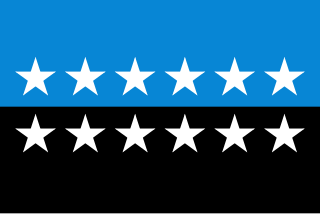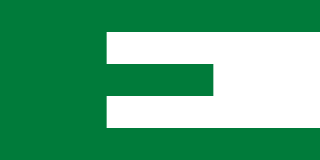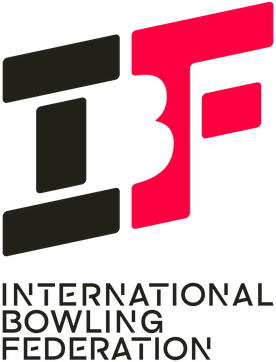Related Research Articles

The European Coal and Steel Community (ECSC) was a European organization created after World War II to integrate Europe's coal and steel industries into a single common market based on the principle of supranationalism which would be governed by the creation of a High Authority which would be made up of appointed representatives from the member states who would not represent their national interest, but would take and make decisions in the general interests of the Community as a whole. It was formally established in 1951 by the Treaty of Paris, signed by Belgium, France, Italy, Luxembourg, the Netherlands, and West Germany and was generally seen as the first step in the process of European integration following the end of the Second World War in Europe. The organization's subsequent enlargement of both members and duties ultimately led to the creation of the European Union.
A students' union or student union, is a student organization present in many colleges, universities, and high schools. In higher education, the students' union is often accorded its own building on the campus, dedicated to social, organizational activities, representation, and academic support of the membership.

The High Representative of the Union for Foreign Affairs and Security Policy/Vice-President of the European Commission (HR/VP) is the chief co-ordinator and representative of the Common Foreign and Security Policy (CFSP) within the European Union (EU). The position is currently held by Josep Borrell Fontelles.

The institutions of the European Union are the seven principal decision-making bodies of the European Union and Euratom governed under the Treaties of the European Union and European Union law. They are, as listed in Article 13 of the Treaty on European Union:
Education International (EI) is a global union federation (GUF) of teachers' trade unions consisting of 383 member organizations in 178 countries and territories that represents over 32 million education teachers and education support personnel from pre-school through university. It is one of the world's largest sectoral global union federations.
The International Commission for Optics (ICO) was created in 1947 with the objective to contribute, on an international basis, to the progress and dissemination of the science of optics and photonics and their applications. It emphasises the unity of the crossdisciplinary field of optics.

The International Federation of Chemical, Energy, Mine and General Workers' Unions (ICEM) was a global union federation of trade unions. As of November 2007, ICEM represented 467 industrial trade unions in 132 countries, claiming a membership of over 20 million workers.

The Union of European Federalists (UEF) is an international non-profit association originally founded in 1946 and refounded in 1973, promoting the advent of a European federal State based on the idea of unity in diversity. In 1946, it brought together a number of initiatives, particularly from the Resistance, aimed at creating a European federation, including the Movimento Federalista Europeo created the day after the fall of Benito Mussolini in Milan from 27 to 29 August 1943, under the impetus of the opponent Altiero Spinelli, among others, and the French Committee for the European Federation created in Lyon by members of the "Francs-tireurs" group in June 1944.

International Bowling Federation (IBF), formerly known as the Fédération Internationale des Quilleurs (FIQ) from 1952 to April 2014 and as World Bowling (WB) from April 2014 to November 2020, is the world governing body of nine-pin and ten-pin bowling. IBF was founded in 1952 in Hamburg, Germany by officials of the International Bowling Association to grow worldwide interest in amateur ten-pin and nine-pin bowling, as well as international friendship by encouraging world and zone tournaments and other competition between bowlers of different countries. IBF has been recognized by the International Olympic Committee since 1979 as the governing body for bowling sports. Starting with five member federations in 1952, it grew to 141 in 2010. IBF has member federations located in all five Olympic regions.

The Free Association of German Trade Unions was a trade union federation in Imperial and early Weimar Germany. It was founded in 1897 in Halle under the name Representatives' Centralization of Germany as the national umbrella organization of the localist current of the German labor movement. The localists rejected the centralization in the labor movement following the sunset of the Anti-Socialist Laws in 1890 and preferred grassroots democratic structures. The lack of a strike code soon led to conflict within the organization. Various ways of providing financial support for strikes were tested before a system of voluntary solidarity was agreed upon in 1903, the same year that the name Free Association of German Trade Unions was adopted.

The International Federation of Red Cross and Red Crescent Societies (IFRC) is a worldwide humanitarian aid organization that reaches 160 million people each year through its 191 member National Societies. It acts before, during and after disasters and health emergencies to meet the needs and improve the lives of vulnerable people. It does so independently and with impartiality as to nationality, race, gender, religious beliefs, class and political opinions.
The Peace Implementation Council (PIC) is an international body charged with implementing the Dayton Peace Agreement for Bosnia and Herzegovina. The Council was established at an implementation conference held in London, United Kingdom, on December 8 and 9, 1995, subsequent to the completion of the negotiations of the accord the preceding month. The Council is, in effect, the realisation, through the High Representative for Bosnia and Herzegovina, which it appoint, of the international community's governance of Bosnia and Herzegovina after signature of the Dayton Agreement. The international control over Bosnia and Herzegovina is to last until the country is deemed politically and democratically stable and self-sustainable.

The year 1948 marked the beginning of the institutionalised modern European integration. With the start of the Cold War, the Treaty of Brussels was signed in 1948 establishing the Western Union (WU) as the first organisation. In the same year, the International Authority for the Ruhr and the Organization for European Economic Co-operation, the predecessor of the OECD, were also founded, followed in 1949 by the Council of Europe, and in 1951 by the European Coal and Steel Community, with the ensuing moves to create further communities leading to the Treaty of Rome (1957).

The history of the European Communities between 1958 and 1972 saw the early development of the European Communities. The European Coal and Steel Community (ECSC) had just been joined by the European Atomic Energy Community (Euratom) and the European Economic Community (EEC), the latter of which soon became the most important. In 1967 the EEC's institutions took over the other two with the EEC's Commission holding its first terms under Hallstein and Rey.
European Union (EU) concepts, acronyms, and jargon are a terminology set that has developed as a form of shorthand, to quickly express a (formal) EU process, an (informal) institutional working practice, or an EU body, function or decision, and which is commonly understood among EU officials or external people who regularly deal with EU institutions.

European University Sports Association (EUSA) is an umbrella non-governmental (NGO) non-profit organisation, working in the field of university sport in Europe.

The Women's International Democratic Federation (WIDF) is an international women's rights organization. Established in 1945, it was most active during the Cold War when, according to historian Francisca de Haan, it was "the largest and probably most influential international women's organization of the post-1945 era". Following the dissolution of the Soviet Union in 1991, its headquarters were moved from Berlin to Paris. In 2002, with the election of Márcia Campos as president, the office relocated to Brasília. Subsequently, in 2007 the WIDF secretariat was located in São Paulo. Since 2016, the president has been Lorena Peña of El Salvador and the world headquarters has been located in San Salvador. The WIDF's magazine, Women of the Whole World, was published in six languages: Arabic, English, French, German, Russian, and Spanish.

The Executive Committee of the Communist International, commonly known by its acronym, ECCI (Russian acronym ИККИ - for Исполнительный комитет Коммунистического интернационала), was the governing authority of the Comintern between the World Congresses of that body. The ECCI, established by the Founding Congress of the Comintern in 1919, was dissolved with the rest of the Comintern in May 1943.

The European Commission's Asylum, Migration and Integration Fund is a funding programme managed by the Directorate-General for Migration and Home Affairs which promotes the efficient management of migration flows and the implementation, strengthening and development of a common approach to asylum and immigration in the European Union. All EU Member States except Denmark participate in the implementation of this Fund. Most of the funds are provided to the EU Member States for activities addressing previously agreed upon themes. A part of the funding is reserved for emergency assistance. A final part is reserved for Union Actions, which are European Commission managed projects that are developed as either calls for proposals, direct awards, procurements, or delegation agreements.

The European Schools is an intergovernmental organisation, which has established, financed, and administered a small group of multilingual international schools, bearing the title "European School", which exist primarily to offer an education to the children of European Union (EU) staff; offers accreditation to other schools, bearing the title "Accredited European School", under national jurisdiction within EU member states to provide its curriculum; and oversees the provision of the secondary school leaving diploma, the European Baccalaureate.
References
- 1 2 3 Kulemann, Wilhelm (1900). Die Gewerkschaftsbewegung.
- ↑ Tarnow, Fritz. "Deutsche Holzarbeiter-Verband". Friedrich Ebert Stiftung. Retrieved 28 May 2020.